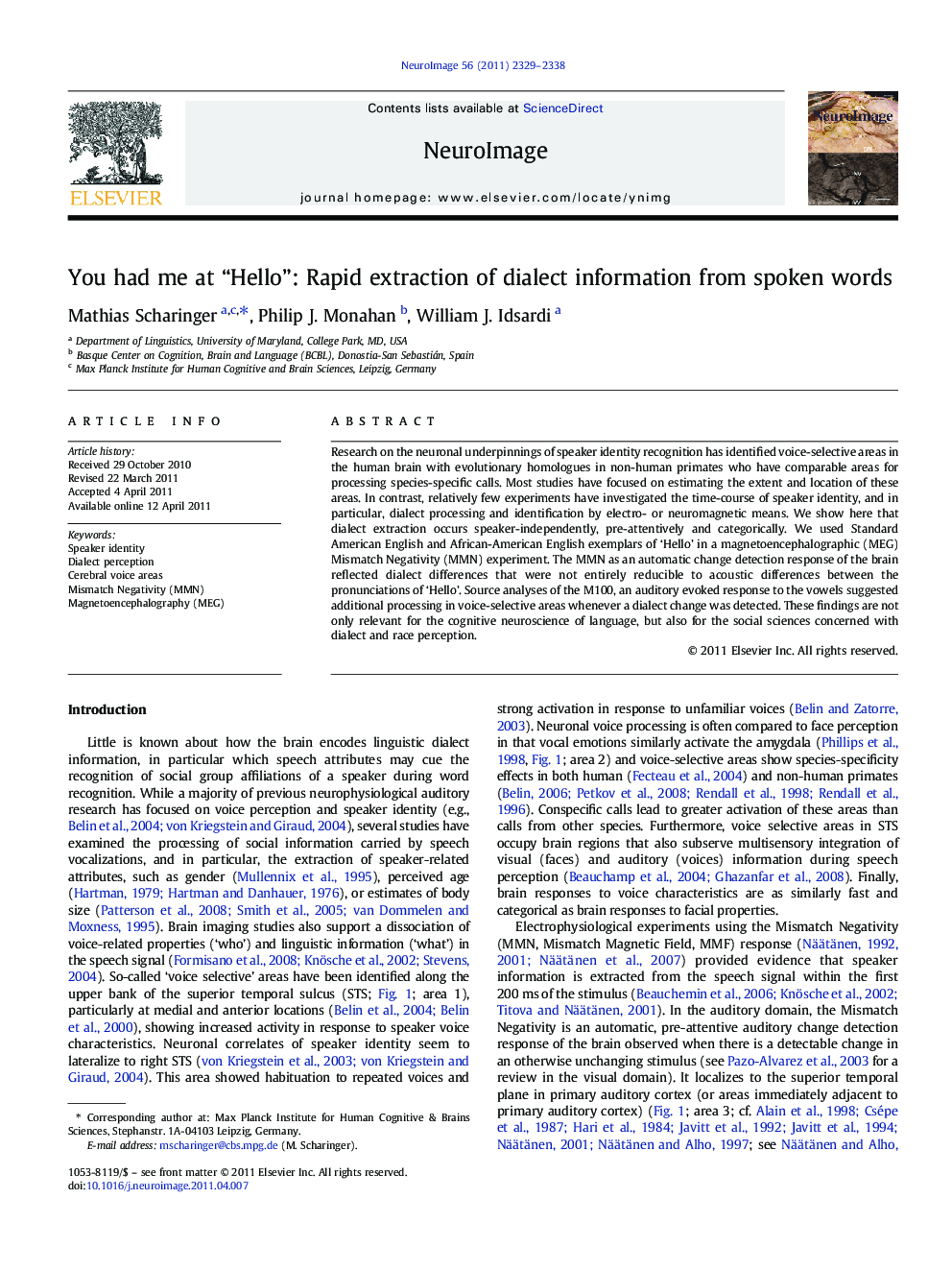| Article ID | Journal | Published Year | Pages | File Type |
|---|---|---|---|---|
| 6035703 | NeuroImage | 2011 | 10 Pages |
Research on the neuronal underpinnings of speaker identity recognition has identified voice-selective areas in the human brain with evolutionary homologues in non-human primates who have comparable areas for processing species-specific calls. Most studies have focused on estimating the extent and location of these areas. In contrast, relatively few experiments have investigated the time-course of speaker identity, and in particular, dialect processing and identification by electro- or neuromagnetic means. We show here that dialect extraction occurs speaker-independently, pre-attentively and categorically. We used Standard American English and African-American English exemplars of 'Hello' in a magnetoencephalographic (MEG) Mismatch Negativity (MMN) experiment. The MMN as an automatic change detection response of the brain reflected dialect differences that were not entirely reducible to acoustic differences between the pronunciations of 'Hello'. Source analyses of the M100, an auditory evoked response to the vowels suggested additional processing in voice-selective areas whenever a dialect change was detected. These findings are not only relevant for the cognitive neuroscience of language, but also for the social sciences concerned with dialect and race perception.
Research highlights⺠Extraction of dialect information from spoken words is rapid and automatic. ⺠Cortical encoding of dialect is categorical despite acoustic differences. ⺠Processing of dialect recruits voice-selective areas in the brain.
